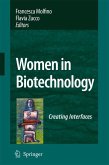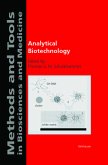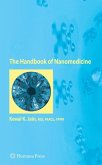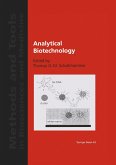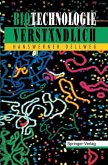Schöne neue Tierwelt?
Fluoreszierende Fische, die bei UV-Bestrahlung leuchten. Delfine mit künstlichen Flossen. Zu Robotern umfunktionierte Käfer, die vom Militär auf Spionagemissionen ausgesandt werden können. Innig geliebte Haustiere, die man mithilfe ihrer DNA wieder auferstehen lässt.
Forscher in aller Welt sind bereits dabei, solche Wesen in die Welt zu setzen. Mancher Weg führt von der Petrischale geradewegs ins Zoogeschäft. Dieses Buch wagt einen - beunruhigenden, aber zugleich faszinierenden - Blick in die High-Tech-Menagerie der nahen Zukunft. Erfinden wir das Tierreich gerade neu? Zu welchem Zweck: um menschliche Launen oder Bedürfnisse zu befriedigen? Spielen wir uns in der Biotechnologie oder Technobiologie zum Schöpfer auf? Wenn sich Kühe gentechnisch so verändern ließen, dass sie keine Schmerzen mehr empfinden - könnten solche Tiere unser schlechtes Gewissen beim Fleischverzehr beruhigen?
Die Wissenschaftsjournalistin Emily Anthes ist um die Welt gereist, um dieFauna der Zukunft kennenzulernen, vom schottischen Geburtsort des Klonschafes Dolly über die Forschungsstätten, in denen Lebewesen technisch aufgerüstet werden, bis zu einer "Pharm" für Hühner, die bei der Krebsbekämpfung helfen sollen. Frankensteins Katze nimmt Sie mit auf eine Entdeckungsreise durch ein wundersames und oft bizarres Wissenschaftsgebiet - und stellt kritische Fragen.
Emily Anthes berichtet von den verrückteren Seiten der Tier-Biotechnologie. Nature
Geistreich und gut recherchiert. The New York Times
Faszinierend, scharf beobachtet und ein wenig beängstigend. New Scientist
_____
Schon seit Jahrhunderten verändern wir unsere tierischen Begleiter: Wir haben Hunde gezüchtet, die jagen oder Schafe hüten, Kühe mit verbesserter Milchleistung, Hauskatzen, die genau wie Tiger aussehen, und kleine Schweine, die in eine Handtasche passen. Aber jetzt hat eine neue Phase der Manipulation tierischer Organismen begonnen, in der uns die Wissenschaft einen immer vielfältigeren Werkzeugkasten für das "Basteln" mit dem Leben bereitstellt. Emily Anthes führt uns in eine Welt zwischen Petrischale und Zoohandlung, zwischen Bauernhof und Militärlabor, in der Biotechnologen die Zukunft unserer pelzigen und gefiederten Freunde und unserer Nutztiere gestalten.
Es gibt eine Katze , die grün leuchtet, wenn man sie mit UV-Licht bestrahlt. Den geliebten Familienlabrador lassen wir durch Klonen wieder auferstehen. In Tiefkühlzoos wird die Erbsubstanz zahlreicher seltener Tiere archiviert, schwer verletzte Tiere können mit Prothesen wieder ein fast normales Leben führen, Kühe, Schweine und Hühner werden mit Krankheitsresistenzen ausgestattet. Die Manipulationen gehen über die Biologie hinaus. Seehunde schwimmen mit eingepflanzten Sensoren durch die Meere, um Umweltbedingungen zu messen und Daten zu übermitteln, Ratten werden für militärische oder humanitäre Zwecke ferngesteuert, mit Roboterschaben soll im Unterricht neurobiologisches Wissen vermittelt werden.
Anthes berichtet von Begegnungen mit Wissenschaftlern, Naturschützern, Ethikern und Unternehmern. Und sie stellt kritische Fragen: Welchen Nutzen haben die vorgenommenen Veränderungen? Soll alles, was möglich ist, auch getan werden? Welche Konsequenzen hat die neue Macht der Biotechnologie für unsere Tierwelt? Und was verraten uns die neu geschaffenen Kreaturen über uns selbst? Frankensteins Katze beleuchtet diesen abenteuerlichen Weg, auf dem Science Fiction-Vorstellungen zu Realität werden, und geht den Verheißungen und Gefahren dieser Entwicklungen nach.
Fluoreszierende Fische, die bei UV-Bestrahlung leuchten. Delfine mit künstlichen Flossen. Zu Robotern umfunktionierte Käfer, die vom Militär auf Spionagemissionen ausgesandt werden können. Innig geliebte Haustiere, die man mithilfe ihrer DNA wieder auferstehen lässt.
Forscher in aller Welt sind bereits dabei, solche Wesen in die Welt zu setzen. Mancher Weg führt von der Petrischale geradewegs ins Zoogeschäft. Dieses Buch wagt einen - beunruhigenden, aber zugleich faszinierenden - Blick in die High-Tech-Menagerie der nahen Zukunft. Erfinden wir das Tierreich gerade neu? Zu welchem Zweck: um menschliche Launen oder Bedürfnisse zu befriedigen? Spielen wir uns in der Biotechnologie oder Technobiologie zum Schöpfer auf? Wenn sich Kühe gentechnisch so verändern ließen, dass sie keine Schmerzen mehr empfinden - könnten solche Tiere unser schlechtes Gewissen beim Fleischverzehr beruhigen?
Die Wissenschaftsjournalistin Emily Anthes ist um die Welt gereist, um dieFauna der Zukunft kennenzulernen, vom schottischen Geburtsort des Klonschafes Dolly über die Forschungsstätten, in denen Lebewesen technisch aufgerüstet werden, bis zu einer "Pharm" für Hühner, die bei der Krebsbekämpfung helfen sollen. Frankensteins Katze nimmt Sie mit auf eine Entdeckungsreise durch ein wundersames und oft bizarres Wissenschaftsgebiet - und stellt kritische Fragen.
Emily Anthes berichtet von den verrückteren Seiten der Tier-Biotechnologie. Nature
Geistreich und gut recherchiert. The New York Times
Faszinierend, scharf beobachtet und ein wenig beängstigend. New Scientist
_____
Schon seit Jahrhunderten verändern wir unsere tierischen Begleiter: Wir haben Hunde gezüchtet, die jagen oder Schafe hüten, Kühe mit verbesserter Milchleistung, Hauskatzen, die genau wie Tiger aussehen, und kleine Schweine, die in eine Handtasche passen. Aber jetzt hat eine neue Phase der Manipulation tierischer Organismen begonnen, in der uns die Wissenschaft einen immer vielfältigeren Werkzeugkasten für das "Basteln" mit dem Leben bereitstellt. Emily Anthes führt uns in eine Welt zwischen Petrischale und Zoohandlung, zwischen Bauernhof und Militärlabor, in der Biotechnologen die Zukunft unserer pelzigen und gefiederten Freunde und unserer Nutztiere gestalten.
Es gibt eine Katze , die grün leuchtet, wenn man sie mit UV-Licht bestrahlt. Den geliebten Familienlabrador lassen wir durch Klonen wieder auferstehen. In Tiefkühlzoos wird die Erbsubstanz zahlreicher seltener Tiere archiviert, schwer verletzte Tiere können mit Prothesen wieder ein fast normales Leben führen, Kühe, Schweine und Hühner werden mit Krankheitsresistenzen ausgestattet. Die Manipulationen gehen über die Biologie hinaus. Seehunde schwimmen mit eingepflanzten Sensoren durch die Meere, um Umweltbedingungen zu messen und Daten zu übermitteln, Ratten werden für militärische oder humanitäre Zwecke ferngesteuert, mit Roboterschaben soll im Unterricht neurobiologisches Wissen vermittelt werden.
Anthes berichtet von Begegnungen mit Wissenschaftlern, Naturschützern, Ethikern und Unternehmern. Und sie stellt kritische Fragen: Welchen Nutzen haben die vorgenommenen Veränderungen? Soll alles, was möglich ist, auch getan werden? Welche Konsequenzen hat die neue Macht der Biotechnologie für unsere Tierwelt? Und was verraten uns die neu geschaffenen Kreaturen über uns selbst? Frankensteins Katze beleuchtet diesen abenteuerlichen Weg, auf dem Science Fiction-Vorstellungen zu Realität werden, und geht den Verheißungen und Gefahren dieser Entwicklungen nach.
"Witzig und gut recherchiert." -- The New York Times
"Fundiert, unterhaltsam und erhellend. " -- Kirkus Reviews
"Tusked mice, transgenic goats lactating antithrombin, dogs with prosthetic testicles: science writer Emily Anthes reports from the wilder shores of animal biotechnology. A team at Fudan University in Shangai, China, for instance, has created 500 strains of modified lab mouse - and hopes to engineer 100,000. A Florida medical team has made a prosthetic tail for an injured dolphin. There is plenty more, but Anthes devotes the final word to bioethics, arguing that the advances are a chance to commit anew to animal well-being." -- Nature
"Fascinating, sharp and a bit scary." -- New Scientist
"Emily Anthes gets the balance just right... Always enjoyable, a page-turner of a popular science book with a surprise awaiting around every corner." -- Brian Clegg, author of Inflight Science and The Universe Inside You
"Ultimately, this is a serious book with a light touch." -- Bloomberg News
"Genetically engineered glow-in-the-dark fish for your fish tank. Cyborg beetles concocted by the Defense Department. Five hundred different strains of transgenic mice caged in a Chinese laboratory. Science journalist Emily Anthes has a knack for ferreting out such eyebrow-raising specimens, and she makes the details of her complex subject matter highly readable in "Frankenstein's Cat," her first book as a solo author." -- The Washington Post
"Charming... the science is accessible and so, mercifully, is the ethics... a breezy introduction to a complex and controversial issue." -- Four stars.
-BBC Focus
"An elegant tour of the wild and fraught sideshow of animal biotechnology ... In a bell-clear voice, the author examines the science behind genes, as well as cloning, cyborg insect armies, rescue rat-bots, "mass production of mutant mice" in China, bomb-sniffing beetle drones, prosthetic tails for dolphins, the possibility of enhancing animal sensory skills, and " 'pharming,' in which simple genetic tweaks turn animals into living pharmaceutical factories." Anthes lays out the facts, but it is still up to readers to decide which side of the ethical divide they will fall on. Learned, entertaining and illuminating." -- Kirkus Reviews
"Animals are fascinating if reluctant soldiers in the biotech revolution, writes journalist Anthes (Instant Egghead Guide: The Mind) in this witty and thought-provoking book." -- Publisher's Weekly
"Medicine-producing goats, a glowing beagle, and remote-controlled rats seem like science fiction, but not only are they scientifically possible, they're already here. Welcome to the weird world of animal biotechnology presented by journalist Anthes ... The book is a quick, often surprising review of current advances, giving accessible treatment to a weighty subject and employing clear descriptions of complex science. Anthes not only explores what is being done but also asks why and if it should be done. Along the way, the book reveals much about humans and our connections to animals and the world we all inhabit." -- Booklist
"This isn't a litany of lab horrors. It's a profoundly hopeful and often funny book about how the dividing line between human, animal and machine isn't as clear as you might think. In the future, animals might be colleagues as well as companions. And we may bring more species back from the brink of extinction than ever before. This is a must for animal lovers, as well as anyone curious about the future of biology." -- io9
"Anthes's new book, Frankenstein's Cat, is an important one precisely because of that visceral reaction we all feel in response to the very idea of biotech. It's a no-bullshit account that looks at the way biotechnology is used today, separating fact from fiction and explaining what you need to know about this thing that creeps us all out." -- The Stranger
"In a fascinating romp through laboratories, barns, and pet stores, science journo Emily Anthes interviews the innovators pushing biological limits, and offers elegant explanations of neuroscience and genetics." -- Mother Jones
"Frankenstein's Cat is smart, lucid, and full of surprises. There is hardly a page that doesn't contain something new or unexpected." -- Anne Fadiman, National Book Critics Circle Award-winning author of The Spirit Catches You and You Fall Down
"With wit, high intelligence, and a lively writing style, Anthes portrays the new world of biotechnology-in which we control the bodies and brains of other animals-and the moral and philosophical issues so raised." -- Alan Lightman, bestselling author of Einstein's Dreams
"Smart, funny and deep: Frankenstein's Cat is a report from the frontiers of the scientific campaign to re-engineer animals to fulfill human desires ... Anthes, whose love of animals shines through on every page, takes her readers on a rich and challenging quest of self-discovery: what rights do the animal objects of our creativity possess-and what obligations to them and to ourselves must we accept as we reshape (again!) the living world? A great read." -- Thomas Levenson, Professor of Science Writing, Massachusetts Institute of Technology, and author of Newton and the Counterfeiter
"Fundiert, unterhaltsam und erhellend. " -- Kirkus Reviews
"Tusked mice, transgenic goats lactating antithrombin, dogs with prosthetic testicles: science writer Emily Anthes reports from the wilder shores of animal biotechnology. A team at Fudan University in Shangai, China, for instance, has created 500 strains of modified lab mouse - and hopes to engineer 100,000. A Florida medical team has made a prosthetic tail for an injured dolphin. There is plenty more, but Anthes devotes the final word to bioethics, arguing that the advances are a chance to commit anew to animal well-being." -- Nature
"Fascinating, sharp and a bit scary." -- New Scientist
"Emily Anthes gets the balance just right... Always enjoyable, a page-turner of a popular science book with a surprise awaiting around every corner." -- Brian Clegg, author of Inflight Science and The Universe Inside You
"Ultimately, this is a serious book with a light touch." -- Bloomberg News
"Genetically engineered glow-in-the-dark fish for your fish tank. Cyborg beetles concocted by the Defense Department. Five hundred different strains of transgenic mice caged in a Chinese laboratory. Science journalist Emily Anthes has a knack for ferreting out such eyebrow-raising specimens, and she makes the details of her complex subject matter highly readable in "Frankenstein's Cat," her first book as a solo author." -- The Washington Post
"Charming... the science is accessible and so, mercifully, is the ethics... a breezy introduction to a complex and controversial issue." -- Four stars.
-BBC Focus
"An elegant tour of the wild and fraught sideshow of animal biotechnology ... In a bell-clear voice, the author examines the science behind genes, as well as cloning, cyborg insect armies, rescue rat-bots, "mass production of mutant mice" in China, bomb-sniffing beetle drones, prosthetic tails for dolphins, the possibility of enhancing animal sensory skills, and " 'pharming,' in which simple genetic tweaks turn animals into living pharmaceutical factories." Anthes lays out the facts, but it is still up to readers to decide which side of the ethical divide they will fall on. Learned, entertaining and illuminating." -- Kirkus Reviews
"Animals are fascinating if reluctant soldiers in the biotech revolution, writes journalist Anthes (Instant Egghead Guide: The Mind) in this witty and thought-provoking book." -- Publisher's Weekly
"Medicine-producing goats, a glowing beagle, and remote-controlled rats seem like science fiction, but not only are they scientifically possible, they're already here. Welcome to the weird world of animal biotechnology presented by journalist Anthes ... The book is a quick, often surprising review of current advances, giving accessible treatment to a weighty subject and employing clear descriptions of complex science. Anthes not only explores what is being done but also asks why and if it should be done. Along the way, the book reveals much about humans and our connections to animals and the world we all inhabit." -- Booklist
"This isn't a litany of lab horrors. It's a profoundly hopeful and often funny book about how the dividing line between human, animal and machine isn't as clear as you might think. In the future, animals might be colleagues as well as companions. And we may bring more species back from the brink of extinction than ever before. This is a must for animal lovers, as well as anyone curious about the future of biology." -- io9
"Anthes's new book, Frankenstein's Cat, is an important one precisely because of that visceral reaction we all feel in response to the very idea of biotech. It's a no-bullshit account that looks at the way biotechnology is used today, separating fact from fiction and explaining what you need to know about this thing that creeps us all out." -- The Stranger
"In a fascinating romp through laboratories, barns, and pet stores, science journo Emily Anthes interviews the innovators pushing biological limits, and offers elegant explanations of neuroscience and genetics." -- Mother Jones
"Frankenstein's Cat is smart, lucid, and full of surprises. There is hardly a page that doesn't contain something new or unexpected." -- Anne Fadiman, National Book Critics Circle Award-winning author of The Spirit Catches You and You Fall Down
"With wit, high intelligence, and a lively writing style, Anthes portrays the new world of biotechnology-in which we control the bodies and brains of other animals-and the moral and philosophical issues so raised." -- Alan Lightman, bestselling author of Einstein's Dreams
"Smart, funny and deep: Frankenstein's Cat is a report from the frontiers of the scientific campaign to re-engineer animals to fulfill human desires ... Anthes, whose love of animals shines through on every page, takes her readers on a rich and challenging quest of self-discovery: what rights do the animal objects of our creativity possess-and what obligations to them and to ourselves must we accept as we reshape (again!) the living world? A great read." -- Thomas Levenson, Professor of Science Writing, Massachusetts Institute of Technology, and author of Newton and the Counterfeiter
"... sehr gut recherchiert ... wird durch eine ausführliche Darstellung der Quellen ergänzt, sodass auch für den an Details interessierten Leser weiteres Lesematerial verfügbar wird. ... ein sehr informatives, in anschaulicher Sprache geschriebenes Buch ... jedem interessierten Leser zur Lektüre empfohlen werden ..." (Heiner Niemann, in: Bio Spektrum/biospektrum.de, Jg. 20, Heft 5, September 2014)
Witzig und gut recherchiert. The New York Times
Fundiert, unterhaltsam und erhellend. Kirkus Reviews
Weitere Stimmen zum amerikanischen Original
Amazon Best Books of the Month, March 2013
Barnes & Noble Best of the Month, March 2013
A Publisher's Weekly Top 10 Science Book for Spring 2013
"Tusked mice, transgenic goats lactating antithrombin, dogs with prosthetic testicles: science writer Emily Anthes reports from the wilder shores of animal biotechnology. A team at Fudan University in Shangai, China, for instance, has created 500 strains of modified lab mouse - and hopes to engineer 100,000. A Florida medical team has made a prosthetic tail for an injured dolphin. There is plenty more, but Anthes devotes the final word to bioethics, arguing that the advances are a chance to commit anew to animal well-being."
-Nature
"Fascinating, sharp and a bit scary."
-New Scientist
"Emily Anthes gets the balance just right... Always enjoyable, a page-turner of a popular science book with a surprise awaiting around every corner."
-Brian Clegg, author of Inflight Science and The Universe Inside You
"Ultimately, this is a serious book with a light touch."
-Bloomberg News
"Genetically engineered glow-in-the-dark fish for your fish tank. Cyborg beetles concocted by the Defense Department. Five hundred different strains of transgenic mice caged in a Chinese laboratory. Science journalist Emily Anthes has a knack for ferreting out such eyebrow-raising specimens, and she makes the details of her complex subject matter highly readable in "Frankenstein's Cat," her first book as a solo author."
-The Washington Post
"Charming... the science is accessible and so, mercifully, is the ethics... a breezy introduction to a complex and controversial issue." Four stars.
-BBC Focus
"An elegant tour of the wild and fraught sideshow of animal biotechnology ... In a bell-clear voice, the author examines the science behind genes, as well as cloning, cyborg insect armies, rescue rat-bots, "mass production of mutant mice" in China, bomb-sniffing beetle drones, prosthetic tails for dolphins, the possibility of enhancing animal sensory skills, and " 'pharming,' in which simple genetic tweaks turn animals into living pharmaceutical factories." Anthes lays out the facts, but it is still up to readers to decide which side of the ethical divide they will fall on. Learned, entertaining and illuminating."
-Kirkus Reviews
"Animals are fascinating if reluctant soldiers in the biotech revolution, writes journalist Anthes (Instant Egghead Guide: The Mind) in this witty and thought-provoking book."
-Publisher's Weekly
"Medicine-producing goats, a glowing beagle, and remote-controlled rats seem like science fiction, but not only are they scientifically possible, they're already here. Welcome to the weird world of animal biotechnology presented by journalist Anthes ... The book is a quick, often surprising review of current advances, giving accessible treatment to a weighty subject and employing clear descriptions of complex science. Anthes not only explores what is being done but also asks why and if it should be done. Along the way, the book reveals much about humans and our connections to animals and the world we all inhabit."
-Booklist
"This isn't a litany of lab horrors. It's a profoundly hopeful and often funny book about how the dividing line between human, animal and machine isn't as clear as you might think. In the future, animals might be colleagues as well as companions. And we may bring mor
Witzig und gut recherchiert. The New York Times
Fundiert, unterhaltsam und erhellend. Kirkus Reviews
Weitere Stimmen zum amerikanischen Original
Amazon Best Books of the Month, March 2013
Barnes & Noble Best of the Month, March 2013
A Publisher's Weekly Top 10 Science Book for Spring 2013
"Tusked mice, transgenic goats lactating antithrombin, dogs with prosthetic testicles: science writer Emily Anthes reports from the wilder shores of animal biotechnology. A team at Fudan University in Shangai, China, for instance, has created 500 strains of modified lab mouse - and hopes to engineer 100,000. A Florida medical team has made a prosthetic tail for an injured dolphin. There is plenty more, but Anthes devotes the final word to bioethics, arguing that the advances are a chance to commit anew to animal well-being."
-Nature
"Fascinating, sharp and a bit scary."
-New Scientist
"Emily Anthes gets the balance just right... Always enjoyable, a page-turner of a popular science book with a surprise awaiting around every corner."
-Brian Clegg, author of Inflight Science and The Universe Inside You
"Ultimately, this is a serious book with a light touch."
-Bloomberg News
"Genetically engineered glow-in-the-dark fish for your fish tank. Cyborg beetles concocted by the Defense Department. Five hundred different strains of transgenic mice caged in a Chinese laboratory. Science journalist Emily Anthes has a knack for ferreting out such eyebrow-raising specimens, and she makes the details of her complex subject matter highly readable in "Frankenstein's Cat," her first book as a solo author."
-The Washington Post
"Charming... the science is accessible and so, mercifully, is the ethics... a breezy introduction to a complex and controversial issue." Four stars.
-BBC Focus
"An elegant tour of the wild and fraught sideshow of animal biotechnology ... In a bell-clear voice, the author examines the science behind genes, as well as cloning, cyborg insect armies, rescue rat-bots, "mass production of mutant mice" in China, bomb-sniffing beetle drones, prosthetic tails for dolphins, the possibility of enhancing animal sensory skills, and " 'pharming,' in which simple genetic tweaks turn animals into living pharmaceutical factories." Anthes lays out the facts, but it is still up to readers to decide which side of the ethical divide they will fall on. Learned, entertaining and illuminating."
-Kirkus Reviews
"Animals are fascinating if reluctant soldiers in the biotech revolution, writes journalist Anthes (Instant Egghead Guide: The Mind) in this witty and thought-provoking book."
-Publisher's Weekly
"Medicine-producing goats, a glowing beagle, and remote-controlled rats seem like science fiction, but not only are they scientifically possible, they're already here. Welcome to the weird world of animal biotechnology presented by journalist Anthes ... The book is a quick, often surprising review of current advances, giving accessible treatment to a weighty subject and employing clear descriptions of complex science. Anthes not only explores what is being done but also asks why and if it should be done. Along the way, the book reveals much about humans and our connections to animals and the world we all inhabit."
-Booklist
"This isn't a litany of lab horrors. It's a profoundly hopeful and often funny book about how the dividing line between human, animal and machine isn't as clear as you might think. In the future, animals might be colleagues as well as companions. And we may bring mor


